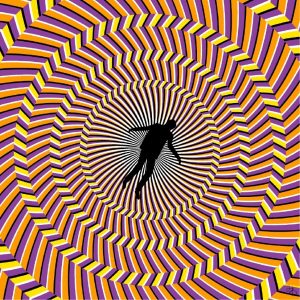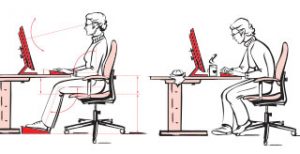- New Patient Line:
- (907) 336-0200
She replied that she’d not had a single episode of vertigo, and that the fullness and noise in her ears was gone along with the jaw pain.
Here in Anchorage, Alaska more than a few of the people that I work with as patients are transient—usually here during the summer and gone elsewhere for the winter months. And while I personally couldn’t imagine leaving the majesty of Alaskan winter for the oppressive heat of the desert southwest, I was delighted to receive a phone call earlier last week from a young lady who does just that.
The first time I met Ana was a little over a year ago when she came to the office dealing with one of the most miserable cases of vertigo I’ve seen. Along with the disorienting dizziness that is the mainstay of vertigo, she was  also dealing with swishing noises in her ear, a strangling feeling around her neck and jaw, and a fullness in her ears that often accompanies vertigo. The nausea she would experience was so bad that she wasn’t able to even lie on her back for fear of tossing her cookies.
also dealing with swishing noises in her ear, a strangling feeling around her neck and jaw, and a fullness in her ears that often accompanies vertigo. The nausea she would experience was so bad that she wasn’t able to even lie on her back for fear of tossing her cookies.
She explained that she’d been dealing with this for about a year, and had gone through all the accepted routes for treatment (and a few others as well). She’d previously seen significant improvement after an ear, nose, and throat doctor performed the Epley maneuver, but now with all the symptoms back again and worse than ever, repeated attempts with the same maneuver weren’t helping at all.
Following a brief NUCCA examination, it was clear that the relationship between her head and neck was not normal, particularly regarding the atlas vertebra at the top of the neck. After fully analyzing the specifics of her misalignment, we made a correction and scheduled her for a check-up the following week. Needless to say, she was quite pleased to report that her vertigo was 80% improved by that time, and that the heart palpitations she had failed to mention earlier also seemed to be gone.
Fast forwarding to earlier last week: Ana asked if she could get checked since she was in town, so we scheduled a visit for the following day. Before she had left Alaska the previous year, Ana had been holding her correction for about a month, which was great, but when she lost her alignment the vertigo symptoms would slowly creep back. Quite frankly, I was expecting to find that she would need an adjustment since it had been so long since we last checked her. Much to my surprise however, she was holding her alignment perfectly. I asked her how she had been doing, and she replied that she’d not had a single episode of vertigo, and that the fullness and noise in her ears was gone along with the jaw pain.
As far as I’m concerned, that is awesome. And that’s why I choose to focus my attention on the upper-cervical spine. When I accept a patient with vertigo, that’s the type of response that I expect to see when the cervical spine is carefully and skillfully attended to. The same thing goes for similar problems like Meniere’s disease.
If you’re wondering how the upper-cervical spine is related to vertigo, I’ve discussed that here, and you can take a look for yourself. If you’re dealing with vertigo or dizziness and want to find out if upper-cervical chiropractic can help, contact me via email or give the office a call at (907) 336-0200.

